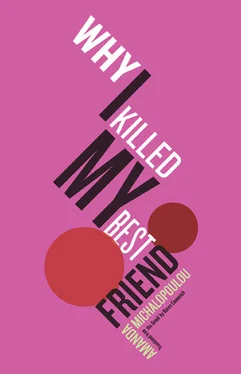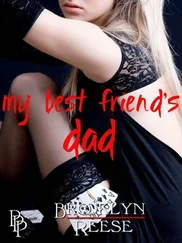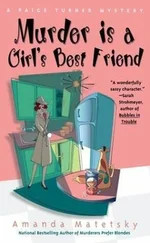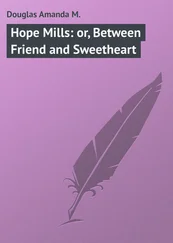“There was a time when she would have walked her shoes to pieces to meet Subcomandante Marcos. Now she slips into heels, neat as can be, and goes down to breakfast at the Intercontinental.”
“You’re too hard on her, Anna.”
“Am I, or is she insensitive? Who would have expected it? She’s no better than your mother these days.”
“What do you mean? My mom doesn’t have a boyfriend, and hasn’t bought a new outfit in years.”
“I mean that these days Antigone cares about what people think, what people say.”
Antigone used to have a false braid! Wasn’t that caring what people thought? I wish I could say something. I wish I could find a way to offend her, the way she offends me.
The crickets are shrieking.
“Listen to this,” Anna says. “ One must deliver politics from the tyranny of history, in order to return it from the event .”
She’s re-reading Alain Badiou on the rocks of Amorgos. She’s found a walking stick, too, like a present-day hermit. This year she’s wearing a blue kerchief over her hair, and new espadrilles. A cheerful worker all in pastels.
“What does that mean?”
“That in practice, communism is entirely active, kinetic, anti-state.” Everything that comes out of her mouth is a quote. I go on cutting up a peach with my penknife.
“Want some? It’s juicy.”
“Why are you avoiding the conversation?”
“I’m not avoiding anything. I just like dealing with tangible things — the sun, a peach. When you were going through your environmental phase, you liked things like that too.”
Anna’s gaze drills right through me. “My environmental phase?” She suddenly leaps to her feet. I’m afraid she’s going to pinch me, but she walks right by, preparing herself for one of her theatrical dives. She slices into the water; a few moments later her head appears in the distance like the head of a pin. I reach for her book and scan the phrases she’s underlined: “ the emigration of victory ,” “ with that orphanhood of the real ,” “ in order for the impossible to obtain its historicity .”
What precisely is she looking for? As the years go by, I find Anna harder and harder to comprehend.
Her hair is done up in a loose braid, her shoulders smell of vanilla-scented moisturizer. She has her back to me in bed, as if we’re a quarreling couple. She’s gathered the sheet up so that it’s dividing her part of the bed from mine, the way she used to divide our desk down the middle at school. This year we rented a room, we’re too old for campsites. We want our own bathroom.
From the other side of the wall come the sighs of a man and woman having sex. The regularity of the sounds seems almost silly when you’re not involved. We eavesdrop; we both miss being in a long-term relationship. These days I see Camus only rarely, and Kayo remains an untouchable dream. For a moment I imagine that the cries are coming from Camus and Anna. It’s not hard to picture them twisted into revolutionary poses on his tattered mattress. Is something going on between them? I’ll never know. These days Anna is careful.
I pull her braid. She throws a pillow at me. Scratches, elbowing, tickling. We dissolve into laughter, fall to the floor, our faces bright red. Anna mimics the couple’s sighs and we laugh until our bellies ache. Our friendship is like a balloon: we blow and blow until it bursts in a flash of disappointment, then we mend the holes and start all over again from the beginning.
“Want to go get something to eat?” I say.
Whenever we’re very sad or very happy we head for the fridge. These days we don’t make up by peeing, but by eating. We order double portions at all the tavernas on the island. The owners treat us like walking advertisements: two toothpicks who eat for five. We wipe our plates clean with chunks of bread and sigh.
“No one knows me the way you do,” Anna says, wiping her mouth with a paper napkin.
We’re in our classic posture of reconciliation: face-up on our towels, Anna’s head on my stomach. My head is turned toward the rocks, my eyes are closed, my lids burn in the sun. I hear footsteps and half open my eyes: high up on the rocks, a man is standing with his hands on his hips. He hisses at us as if we were cats.
“Get lost, you fool!” Anna shrieks. She sits up and puts her hands on her hips, too, ready as ever for a fight.
The man starts climbing down in our direction. He’s moving quickly, practically at a run, aided by the downward slope. The sun is at his back, which makes it hard for us to see him clearly. It’s not until he’s just five meters away that we can see he’s a foreigner, probably Albanian, and of that indeterminate age of men who work hard under the sun. He has a sunburnt forehead, bright green eyes, and an enraged look in his eyes. He seems to think I’m the one who shouted at him. He rushes at me and grabs my wrists, the way my mom used to when I was little.
“Who did you call a fool?”
“Let me go!” My wrists hurt.
“Let go of her right now!” Anna shouts. “You pig, you jerk!”
The man is beside himself. He grabs me and drags me to the very edge of the rock; my head scrapes against the ground, my back is bleeding. Anna rushes at him, leaps onto his back, clings to his shirt. The man elbows her hard in the ribs and she falls onto my towel, as if she were a pesky lizard he’d flicked off his arm. He heads for me again, threateningly. His shoes are caked in tar and sand.
“Who did you call a fool?”
His hands — thick, callused red fingers — are curled into fists. I close my eyes and see three stocky men at the mouth of a cave. They have stockings over their faces. Behind their backs stretches a beach with rusting suya grills. The air is thick, humid. It’s the rainy season in Nigeria.
Someone kicks me hard in the nose. Hot blood gushes. Instead of fainting, I open my eyes wide: the man is standing above me, ready to kick me again, this time in the ribs, and maybe spit on me, too. His nostrils flare with rage. Anna rushes at him again, this time with her walking stick. She takes aim as if she were a pole-vaulter and plunges the stick into his gut. The man loses his balance and falls off the rocks into the sea. He growls, swallowing water with loud gargling noises, then shouts something incomprehensible, struggling against the waves.
“Run!” Anna shouts.
We start running up the hill like madwomen. At the top we stop to catch our breath beside a bicycle with a rusted chain — it must be his. I turn back toward the sea. My heart feels as if it might explode.
“Anna, look!”
My voice sounds distorted, I’m holding my nose with one hand to stop the blood. Her eyes turn instinctively to where I’m pointing: the Albanian’s body is floating, face-down. His printed shirt has ballooned out like a parachute over his back.
The sun is hot, but our inner temperature has dropped.
“Are you sure he drowned?” She keeps asking the same question every five minutes, as if any second now he might come back to life, swim to shore and crawl from the sea like a creature out of some horror movie thirsting for revenge. Deep down we wish we were in that kind of movie. We wish he would crawl out of the water and attack us again; we wish he would give us a second chance.
Sitting on the bed, we take turns tending to one another’s wounds and crying. My back is badly scraped, and my nose won’t stop bleeding. The worst was when we had to go back down to the shore and gather our things, clean the blood from the rocks and get rid of the stick. The whole time we could see the Albanian, floating, out the corner of our eye. Motionless, his shirt filled with water, like a deflated raft. Blood was flowing from somewhere, diffusing steadily into the sea. He had probably hit up against the rocks.
Читать дальше












